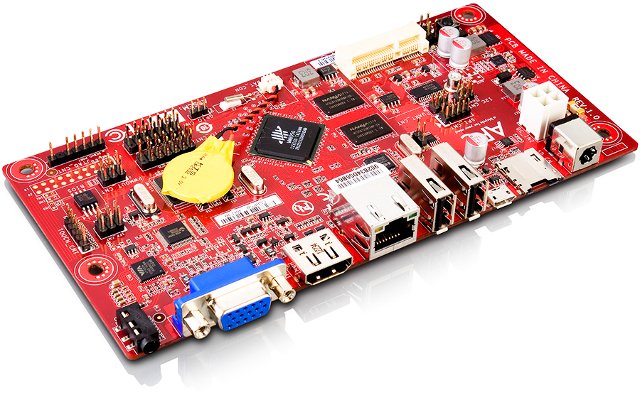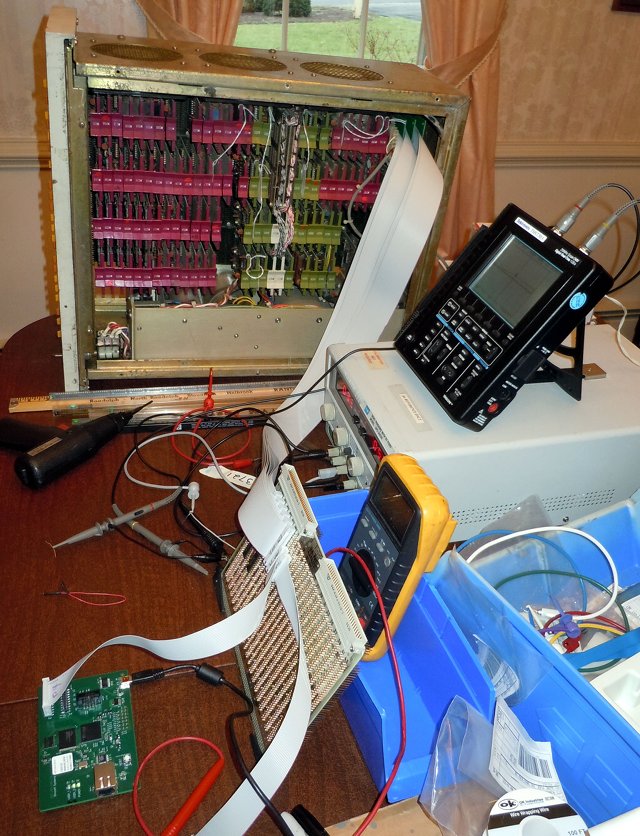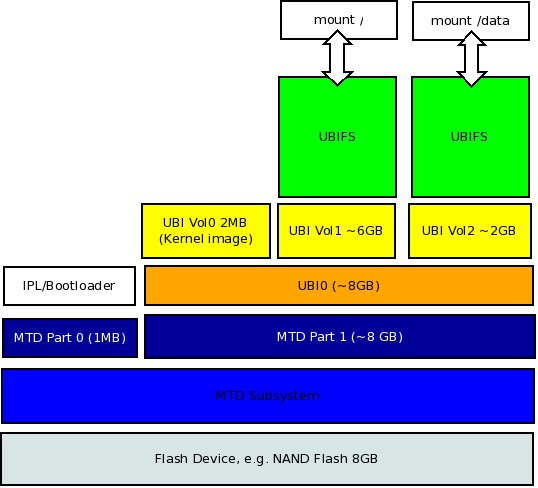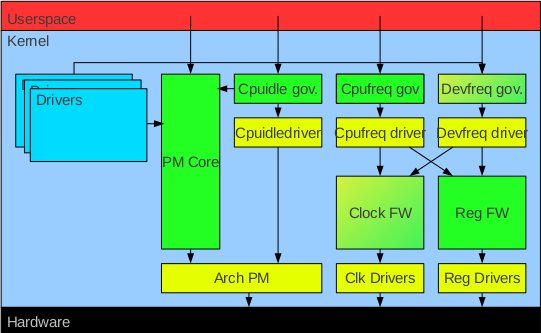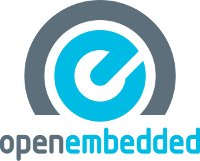Following the launch of the $49 APC ARM11 board as a Raspberry Pi alternative last year, VIA has just announced two new APC products based on a WonderMedia WM8950 Cortex A9 processor: APC Rock – $79 Android board APC Paper – $99 Android PC with a case made of recycled cardboard Both products run Android 4.0 (ICS) and mostly share the same specifications: SoC – VIA WonderMedia WM8950 ARM Cortex-A9 @800Mhz + Mali-400 GPU System Memory – 512 DDR3 SDRAM Storage – 4GB NAND Flash + microUSB slot Video Output – HMDI (Rock & Paper) and VGA (Rock only) Audio I/O – Audio out / Mic in combo Ethernet – 10/100 Mbps USB – USB 2.0 (x2) and microUSB (OTG) 20-pin ARM-JTAG header Extra GPIO, SPI and I2C busses on a header Dimensions (Board) – 170 x 85mm (W x H), Neo-ITX Standard. APC Paper is basically the same as […]
Posibus Peripheral Emulator Powered by Emcraft SmartFusion (Cortex M3 + FPGA) Solutions
According to Wikipedia, Digital Equipment Corporation (DEC) PDP-8 was the first successful commercial minicomputer, and was introduced in March 1965. Mike Thompson, working at Rhode Island Computer Museum (RICM), has restored a PDP-8/L system that was sold between 1968 through 1971. The system can be expanded with 4K of core, a paper tape reader (PR8/L), and/or a punch (PP8/L) controller. But the tape reader is not available anymore, so Mike decided to designe a Posibus peripheral (Tape Reader) emulator using a board with an FPGA + micro-controller. The easiest way to perform this task was to get an SoC that comes with an MCU and a FPGA to avoid having to create an FPGA <-> MCU interface. This is why he chose Emcraft Linux SmartFusion Evaluation Kit featuring a Microsemi Smartfusion cSOC with a Cortex M3 core and an embedded FPGA. The whole setup is shown below. Three FlipChip interface boards […]
Yocto Project Overview and Update – ELCE 2012
Last post about ELCE 2012 videos… David Stewart, manager of the Yocto Project team within the Open Source Technology Center at Intel, gives an introduction to the Yocto Project, as well as a status update at ELCE 2012. Abstract: The Yocto Project is a joint project to unify the world’s efforts around embedded Linux and to make Linux the best choice for embedded designs. The Yocto Project is an open source starting point for embedded Linux development which contains tools, templates, methods and actual working code to get started with an embedded device project. In addition, the Yocto Project includes Eclipse plug-ins to assist the developer. This talk gives a walk-through of the key parts of the Yocto Project for developing embedded Linux projects. In addition, features will be described from the latest release of the Yocto Project, v1.3. The talk will include demos of some of the key new […]
Video4Linux: Current Status and Future Work – ELCE 2012
Hans Verkuil, R&D software engineer at Cisco Systems Norway, talks about Video4Linux status, progress, and plans at the embedded Linux Conference in Barcelona, Spain, on November 7, 2012. Abstract: Video4Linux is a fast-changing subsystem where a lot of work is done to support the complex video hardware of embedded systems. This presentation will give an overview of the developments in the past year and the work that is planned for the near future. Hans covers SoC video devices support, core, control, and videobuf2 frameworks, HDTV timings & events API, video connector support, media controllers, codec & flash support, and more… You can also download the slides for this presentation. For further details about development, subscribe to linux-media mailing lists or chat on #v4l IRC channel on freenode. Jean-Luc Aufranc (CNXSoft)Jean-Luc started CNX Software in 2010 as a part-time endeavor, before quitting his job as a software engineering manager, and starting […]
LTSI (Long-Term Stable Initiative) Status Update – ELCE 2012
Tsugikazu Shibata, chief manager of OSS promotion center at NEC, gives a status update for LTSI, an LTS kernel for the consumer electronics market at ELCE 2012. Abstract: LTSI (Long-Term Stable Initiative) had been established October 2011 as an activity of CE Working Group of The Linux Foundation. LTSI will maintain Linux kernel for long term and stable for use of Consumer Electronics industry to share common cost and also help industry engineers to merge their patches into upstream. This talk will update latest status of LTSI project and discuss about next step such as how the development process going on and what version of Linux kernel will be maintained for long term and stably use. This talk will be intended to provide information for managers and engineers in the embedded industry and not necessary to have specific knowledge. Agenda of the talk: Status of Linux kernel development and maintenance […]
UBI Fastmap – ELCE 2012
Thomas Gleixner, Linux kernel programmer at Linutronix, talks about UBI flash management layer, and fastmap implementation to speed up boot times at the Embedded Linux Conference Europe, on November 7, 2012. Abstract: UBI is a flash management layer in the Linux kernel designed to handle especially the shortcomings of NAND flash. UBI itself has the requirement to scan the full flash at boot time. With flash sizes becoming larger and larger this can take quite some time. A recent development implemented fast mapping functionality which is designed to put an upper bound on the number of flash eraseblocks to scan. This allows faster boot times without sacrifying the robustness of UBI. This talk gives an overview of the UBI fastmap design and looks at costs and benefits. The talk provides an overview of UBI and its shortcomings, and explains UBI fastmap implementation in details showing it provides significant speedup proportional […]
Debugging Embedded Linux (Kernel) Power Management – ELCE 2012
Tero Kristo, Linux kernel developer at Texas Instruments, explains how to debug power management in Embedded Linux at ELCE 2012. Abstract: The presentation will talk about debugging various problems a kernel developer can face when working with power management. These include hardware related issues (IC / HW layout bugs, bad documentation) and software related (kernel bugs, driver problems, adding new kernel features, bad userspace behavior.) Along with presenting some of these problems, I will discuss about ways to debug these… power management typically requires specific tools to be used. I will base the discussion on my first hand experience from working with Linux PM. Target audience is (kernel) software developers interested in power management. The presentation is divided into 3 sections: Debugging tools / methods for PM Disabling kernel features Stress testing Tracing (printk / low level UART) GPIO / LED trace Debugger Buffered traces / statistics with trace-cmd & […]
ARM 64-Bit Bootstrapping with OpenEmbedded – ELCE 2012
Marcin Juszkiewicz, software engineer at Canonical, explains how ARMv8 was bootstrapped with OpenEmbedded with fast model simulation at the Embedded Linux Conference in Barcelona on November 7, 2012. Abstract: The time has come – there is ARM 64-bit architecture right behind a corner. In this talk I will present how OpenEmbedded was used to build root filesystem for fast models simmulating not-yet-existing hardware. Presentation is targeted at developers interested in cross compilation, handling new architectures in existing projects. Agenda of the talk: Introduction to Aarch64 – aka arm64 or ARMv8, the new 64-bit version of the ARM architecture Introduction to OpenEmbedded – Build system capable to build everything from package to whole distribution with repositories First steps: Create own layer for AArch64 stuff Adding basic support into OE classes Machine definition Toolchain – Based on gcc 4.7 + ARM patches Build results – As of October 2012, 800 packages have […]


